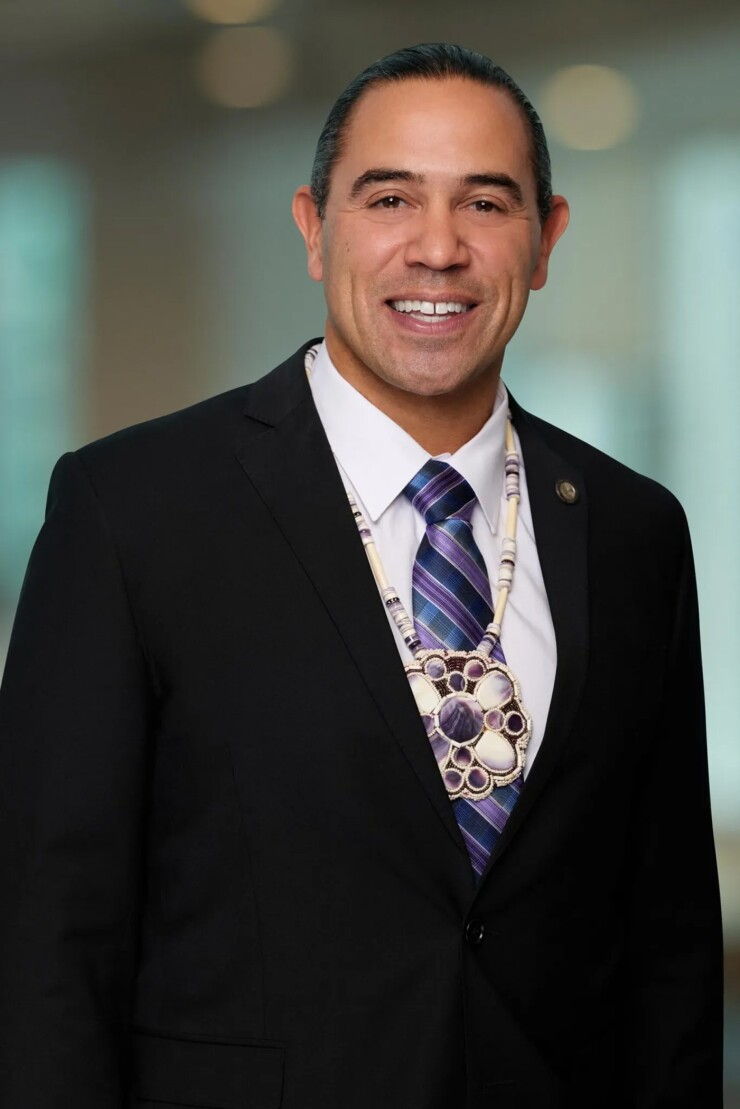
Native American Tribes are testifying to committees from both houses of Congress in an attempt to clarify tax rules that would allow them to issue bonds using the same rules as the states.
"Ending this discriminatory treatment of tribal governments by providing them full parity with state and local governments in accessing tax-exempt bond financing will enhance job creation, generate sorely needed governmental revenue for social services, stimulate infrastructure and business development on tribal lands, and accelerate the diversification and resiliency of tribal economies, particularly in their private sectors."
The testimony comes from Rodney Butler, chairman of the Mashantucket Pequot Tribal Nation and president of the NAFOA board of directors.
The NAFOA was founded as the Native American Finance Officers Association and represents over 170 Tribal nations in more than 28 states.
This week the group is scheduled to testify before the House Appropriations Subcommittee on Interior Environment and Related Agencies in a series of hearings starting on Tuesday. Earlier this month they delivered the same message to the Senate Committee on Indian Affairs.
The main bone of contention is tied to convoluted rulings by the Internal Revenue Service attempting to clarify rules in the tax code that prevent the tribes from issuing private activity bonds for anything that is not considered an "essential government function."
Per the NAFOA, "Many tribes find themselves excluded from some of the financing options that state/local governments have available. In the case of the bond options state/local governments have access to much higher caps, making it easier for them to access, whereas tribes have to compete for a fraction of the available bonds."
The Tribes have been working on separate bills dealing with the dispute in both houses of Congress in efforts that stretch back to the second Obama administration. Current champions in the House include Congresswoman Moore D-Wisc., Congressman Schweikert R-Ariz., and Senator Cortez Masto D-Nev.
The task of getting Congressional attention is further complicated by the current cost-cutting mission that is threatening the tax-exempt status of municipal bonds while putting more restriction on PABs.
According to NAFOA, Congress is basing their side of the argument on revenue lost via the tax exemptions.
"Discussions have been related to costs," said the NAFOA. "The Congressional Budget Office estimates the numbers at $77 million in costs over ten years for the bonding section. The estimated total cost of the federal tax exemption for municipal bonds was $27 billion in fiscal year 2022. We are confident that the positive economic impact far outweighs the costs."
In 2021 the Brookings Institution laid out some of the complications existing between the Tribes and the IRS relative to taxing authority.
Per their
The Tribes are also appealing to Congress for help with loosening up the restrictions on Low Income Housing Tax Credits to grant them easier access to a powerful tool used to develop affordable housing.
According to NAFOA, the barrier hinges on the department of Housing and Urban Development's definition of a "Difficult Development Area," that excludes Tribal land.
In addition to tax parity the Tribes are also advocating for unfreezing the flow of federal funds, better access to New Market Tax Credits, increased technical assistance from the IRS, and increased participation in the Direct Pay program that exchanges green energy credits for cash.





